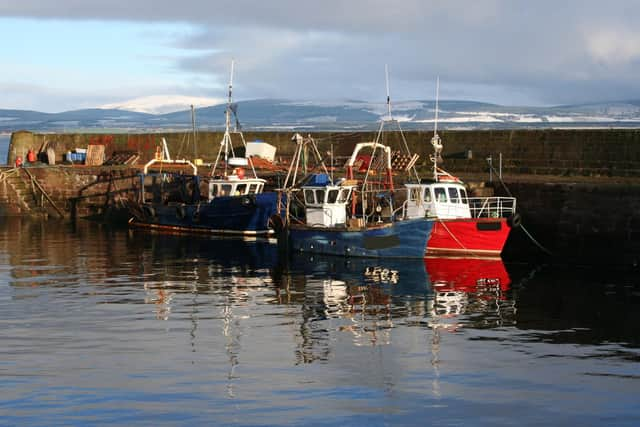Highly protected marine areas: Scottish minister Màiri McAllan announces formal scrapping of HPMAs, confirms Scottish waters Bill will not be introduced
The Scottish Government has formally confirmed its plans to introduced highly protected marine areas (HPMAs) in 10 per cent of Scotland’s waters has been scrapped.
In a formal statement to a recent consultation, the Government said it no longer intended to progress establishing new legal powers for introducing HPMAs in Scottish inshore waters through a Bill in the Scottish Parliament this parliamentary term, which ends in 2026.
Advertisement
Hide AdAdvertisement
Hide AdNet zero secretary Màiri McAllan said: “In response to the findings of the consultation, and as I set out in Parliament earlier this year, the proposal to implement highly protected marine areas (HPMAs) across 10 per cent of Scotland’s seas by 2026 will not be progressed.


“My thanks go to everyone who took the time to respond to the consultation and to those who have continued to engage constructively with me and other ministers over the summer.
"The Government is firmly committed to protecting our marine environment and will continue to work closely with coastal communities and industries to protect Scotland’s seas for the benefit of all. As a priority this includes completing management measures for our existing Marine Protected Area (MPA) network and protecting our priority marine features.
“I am determined to protect our oceans in a way that is fair, and to find a way forward that ensures our seas remain a source of prosperity for the nation, especially in our coastal and island communities.”
Tavish Scott, chief executive of Salmon Scotland, said: “This analysis confirms that individuals were overwhelmingly opposed to the introduction of HPMAs, and the Government was right to listen to these concerns and shelve the proposals.
“This confirmation is a huge relief for salmon farmers and all those who rely on our sector who were concerned about the impact on their livelihoods. I am grateful to all the MSPs who spoke up in support of our sector and rural Scotland.
“We once again commit to working with the Scottish Government to develop workable proposals that safeguard both livelihoods and the marine environment on which they rely.”
Elspeth Macdonald, chief executive of the Scottish Fishermen's Federation, said: "We welcome today's confirmation by the Scottish Government that it will not seek to ban fishing in at least 10 per cent of Scottish waters. But ministers need to maintain that position and not bring in similar measures through other routes.
Advertisement
Hide AdAdvertisement
Hide Ad“What’s important is that we have an approach to conservation that balances marine protection with sustainable use, as the Government’s existing policies should be aiming to achieve.”
Scottish Conservative shadow rural affairs secretary Rachael Hamilton said described the formal scrapping of HPMAs as a “victory for our fishermen”.
She said: “For far too long, SNP ministers failed to engage with the industry over what this effective ban on fishing would have meant, as they bowed to the demands of their extremist Green partners.
“The responses to the consultation show that despite the efforts of a concerted campaign to skew the opinions on highly protected marine areas, the vast majority of respondents were opposed to the plans.
“Now that these wholly unworkable plans have been consigned to history, the SNP-Green government must be upfront about any future plans for marine protection. It can’t simply mean expanding current areas without bringing fishermen on board or reintroducing their previous plans by another means.”
Comments
Want to join the conversation? Please or to comment on this article.